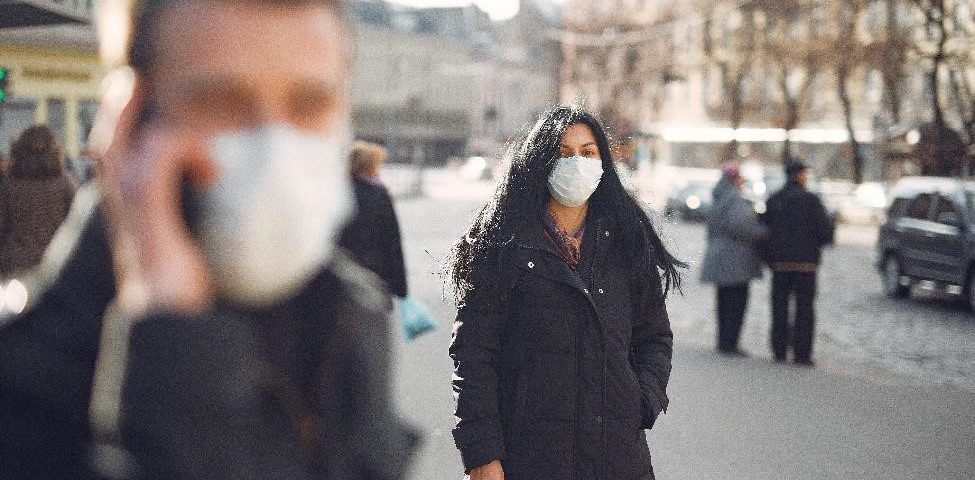
The Hardest Hit by COVID-19? Women and Girls
A juggling act
In 2017, the world laughed when the young children of a professor burst into his home office during his live interview with the BBC. The clip of flustered parents, a strutting four-year-old, and the nonchalant baby in his walker went viral. Three years later, for many of us, this family’s now public moment is our new normal.
This new reality spurred by the COVID-19 pandemic has been more of a juggling act for women who bear the brunt of caregiving, homeschooling and work-from-home responsibilities all at once. With women performing, on average, more than twice as much unpaid caregiving as men, the reality is that more women can directly relate to the professor’s experience. Even during the best of times, women are already 10 times more likely than men to stay home from work with sick children, according to a study from the Kaiser Family Foundation. The closure of schools, childcare centers, small businesses and community centers has put further strain on family dynamics. And what about single moms who already struggle to keep their families afloat? In Chester County, 2 out of 5 single moms live below the poverty line (2016 Blueprint Report). For them, the juggling act has only intensified in the face of this new normal.
Economic advancement in jeopardy
In today’s workforce, women make up roughly 70% of the world’s health and social sector workers. Whether in their professional or personal responsibilities, women’s role as default caregivers put them on the front lines of this crisis, increasing their risk of infection. Even more, because women are disproportionately represented in the lowest-paying sectors, they are particularly susceptible in an economic crisis to loss of income or lack of crucial workforce protections like paid sick time. Finally, the pay gap will widen even further for workers in industries where pay is already not equitable, leaving women with less money in their pockets and less in their savings to weather this storm.
Gender-based violence
For the more vulnerable women and girls in our communities, this period of social distancing and quarantine will put them at greater risk for gender-based violence, particularly with stay-at-home orders in effect. For many, home is not a safe place to be. Additional factors like stress, alcohol consumption, and financial woes – all common in this climate – will often trigger violence in the home. Already, the data is clear that gender-based violence is on the rise worldwide.
Bold, responsive leadership
As a bold community leader and connector, Chester County Fund for Women and Girls (CCFWG) recognizes that the current pandemic has only brought into sharper focus the challenges women and their families have always faced. We continue to support our grantee partners on the front lines of providing basic needs for vulnerable members of our communities, partners like the Domestic Violence Center of Chester County and Crime Victims’ Center of Chester County that offer 24/7 hotlines for victims and virtual counseling sessions to ensure women and girls have continued access to essential care. These lifelines are essential given that resources are often shifted away from routine, critical services during emergencies like COVID-19.
Through these tough times, CCFWG pledges to take our mission a step further; to lead and unite with compassion as we challenge our fellow non-profits and foundations, grantee partners, Board and supporters to advocate, innovate and stand united in this unprecedented time of need for women and girls in Chester County.
CCFWG promises to:
- Continuously explore ways to support our community, grantee partners, and the non-profit sector through days ahead
- Leverage collective resources to fight for the needs of women and girls, needs that will keep growing even after the pandemic is over
- Analyze the data measuring the impact of COVID-19 by gender, age and race to uncover targeted and responsive solutions for members of our communities
- Work to ensure women are at the decision-making table. Chester County is fortunate to have some great female leaders. As a collective, we are well-positioned to be trusted messengers based on our roles, responsibilities and networks.
We are only as safe – or empowered – as the most vulnerable among us. As leaders, we must work together to put forth a vision of a more just, equitable and inclusive future for Chester County. It’s our role to shape the narrative. Let’s emerge from the other side of this crisis stronger, more connected, and more equitable than ever.
In solidarity,
Chester County Fund for Women and Girls

1 Comment
Well said. And thank you for drawing attention to these important issues. As the mother of 3 daughters and the lead staff in an organization that strives to strengthen families in the face of adversity, I am glad that our community has CCFWG to shine a spotlight the discrepancies and to help find solutions.